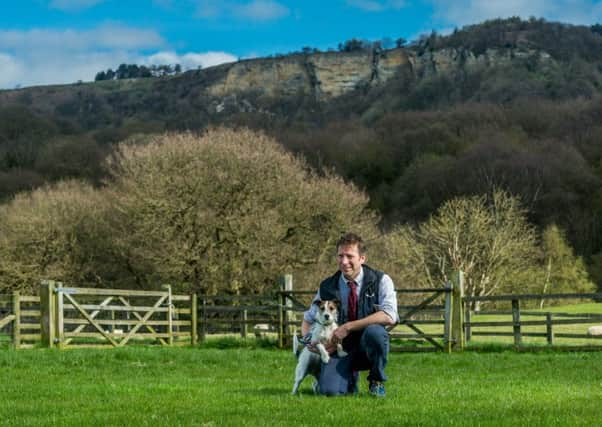No let up for Julian Norton, from colic to ruptured ligaments


Breakfast seemed a distant memory. I had spent the morning fixing a ruptured cruciate ligament in a schnauzer, and treating pneumonic cattle that were coughing in the fog of a winter in the Vale of York.
My first patient after what should have been lunch was Daisy, an English springer spaniel. Daisy’s owner had already taken her into the consulting room, to await my arrival. Her ear, which had been very sore and inflamed the week before, was looking much better and I waved them both goodbye after administering a final treatment.
Advertisement
Hide AdAdvertisement
Hide Ad“There’s a Labrador on its way down,” said Fiona, one of the nurses, as soon as I had finished Daisy’s check-up. “I think she might have a pyo. Apparently, she’s discharging a brown liquid. I thought it would be better to see her now rather than leave her over the weekend.”


Fiona, with years of nursing experience, was completely correct and, as I examined Amber later that afternoon, she did indeed show many signs of the serious uterine infection known to dog lovers and veterinary staff as a pyometra. Emma, my colleague, scanned her abdomen as I finished my appointment list. The scan confirmed our diagnosis, and we set about the surgery that would prove to be life-saving for Amber.
But before Amber’s op was completed, Fiona was back, “Julian, now I’ve got a horse with colic. It sounds quite urgent and the owners are very worried.”
Advertisement
Hide AdAdvertisement
Hide Ad

I was already closing the abdomen, so Fiona went back to the phone to reassure the horse’s owner that I would be with them in about half an hour. Colic cases are always urgent and necessitate the vet dropping pretty much all other jobs to get there as soon as possible. There was nothing I could do, though, before first ensuring Amber was safely off the table and waking up in her kennel. Then, I rushed off. Again.
The horse was at a trekking centre. I made my rapid way down the lane where my sat-nav had taken me and there, waiting in the dusky evening gloom, was a silver pick-up. Its owner jumped out as soon as he saw my car headlights.
Advertisement
Hide AdAdvertisement
Hide Ad“Are you Julian? Good, she’s down this way. Follow me!” with that, he jumped into his vehicle and sped away down a bumpy track, at about 50 miles an hour, so that I could hardly keep up.
I arrived in the dark yard, pulled up behind the pick-up, which had steam issuing from some part of it, stepped out of my car and into a puddle.
The coloured mare was sweaty and sore and kicking her belly and was most certainly suffering from colic. Colic means ‘abdominal pain’ and it is a condition that often affects horses.
The causes can range from mild, spasmodic colic – easily diagnosed and easily fixed – to severe and life-threatening disease where emergency surgery is the only hope. As I examined the horse with my stethoscope, the gurgling and squelching noises issuing from the abdomen of my patient confirmed this was spasmodic colic – the least serious type.
Advertisement
Hide AdAdvertisement
Hide AdHorse, owner and vet all breathed a sigh of relief as the spasmolytic drugs coursed their way through her veins. It had been a busy, mixed and varied day – the reason why I love mixed practise.
Follow Julian on instagram at @juliannortonvet.
Read more: